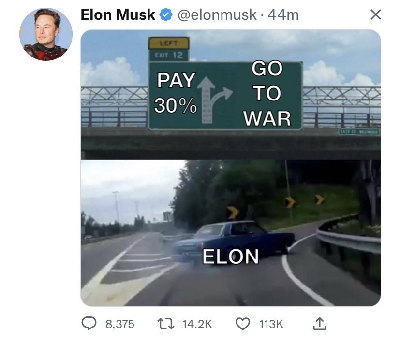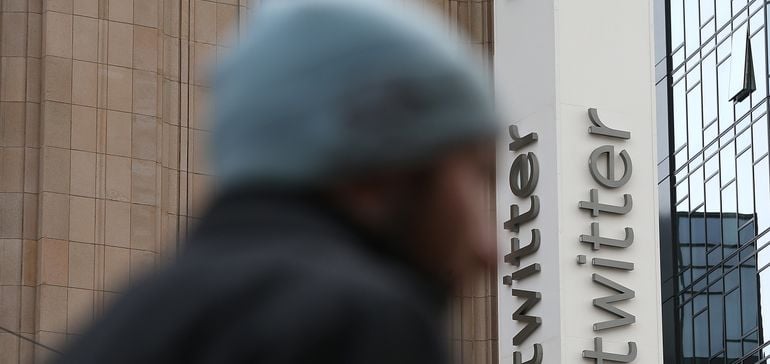In the past, many former associates and business partners of Elon Musk have noted that he’s not the guy that he appears to be based on his tweets. Musk takes a more rational, measured and professional approach in his business dealings, and while he may look to stoke controversy with his various comments and opinions, he also knows that, in order to make the business work, he needs to compromise and stay within the rules, as governed in each region.
Essentially, what Elon says and what he does are often very different things, which is an important note when assessing his direction for Twitter, and his tweeted edicts.
Today, EU Commissioner Thierry Breton met with Musk to discuss Twitter’s recent change in management, and its future alignment with the EU Digital Services Act (DSA), which includes various provisions around content moderation and user safety, that Musk’s new Twitter team will have to comply with in order to continue operating in the EU region.
Which, with thousands fewer moderation staff, could seemingly pose a challenge.
As per Breton:
“There is still huge work ahead, as Twitter will have to implement transparent user policies, significantly reinforce content moderation and protect freedom of speech, tackle disinformation with resolve, and limit targeted advertising.”
But, Breton says, Musk has committed the company to adhering to these rules, which, at least on the face of it, could have some impact on his broader ‘free speech’ approach.
Though again, what Elon says and what he does are different, and his repeated banging on the ‘free speech’ drum is increasingly seeming more aligned with boosting engagement than it is about changing the company’s actual content approach.
Indeed, in a new blog post, outlining the approach of Twitter 2.0, Twitter says that:
“None of our policies have changed. Our approach to policy enforcement will rely more heavily on de-amplification of violative content: freedom of speech, but not freedom of reach.”
I mean, that’s not entirely true – Twitter has stopped enforcing its COVID misinformation policy. But in a broader moderation and management sense, Twitter says that its rules around hate and harm remain in tact.
Musk seems to be trying to play both sides with this approach – rather than removals and suspensions, Musk’s hoping that he can reduce the presence of offending tweets and comments, which will be enough to meet the DSA and other regional requirements.
Which includes the requirements of Apple and Google, which both have content moderation policies built into their app store guidelines.
Essentially, Musk will be restricted in how far he can take his ‘free speech’ approach, no matter what he says. But again, Twitter’s policies haven’t changed anyway, so despite Musk’s repeated proclamations that he’s fighting for free speech, and standing up for people’s right to say what they like, in reality, Twitter policy, in its own words, has not changed at all.
This is a battle for the future of civilization. If free speech is lost even in America, tyranny is all that lies ahead.
— Elon Musk (@elonmusk) November 29, 2022
This further points to Musk using the ‘free speech’ argument as a lever to boost engagement, as opposed to it being a fundamental element in his Twitter 2.0 vision.
Case in point – earlier this week, Elon tweeted out this meme after calling out Apple for scaling back its Twitter ad spend.

Musk then deleted the above tweet, then posted the comment embedded about his fight against Apple being ‘a battle for the future of civilization’.
Elon knew that the meme weakened his argument, in that it revealed that he’s actually more opposed to paying Apple’s 30% App Store fee than he is against Apple’s rules, which could, in some people’s view, impact free speech. But he also knows that the free speech argument sparks more controversy, more debate, and will get him and Twitter more attention as a result, so he’s using this as a proxy to put pressure on Apple, in a bid to get out of paying 30% on Twitter Blue subscriptions.
Which is unlikely to work – but more importantly, it highlights the tactics behind Elon’s politicized push.
That’s not to say that Elon doesn’t care about free speech, but he is using this as a negotiating tactic, as opposed to taking a moral or ethical stand on this specific issue.
And again, in closed rooms, in negotiations with the EU, in discussions with advertisers, I’m sure Elon’s approach is much more subdued than it is online. Because he knows that he needs them, he knows that he needs the access, the ad dollars, he knows that he’ll have to play by the rules to stay in line with these requirements.
Which further points to the fact that you can’t necessarily rely on Elon’s tweets as an indicator of his strategy. His tweets are a PR exercise, a means to drive controversy and debate, which will then bring more users to Twitter as a result.
As such, you can expect Elon to continue saying controversial things, while also carefully staying within the bounds of what’s legal, and maintaining essentially the same rules and approach to such in the app.
The ‘free speech’, ‘culture war’, ‘power to the people’ stuff is all just a sideshow designed to generate maximum exposure for himself and the app – and convince his supporters to pay him $8 per month.



